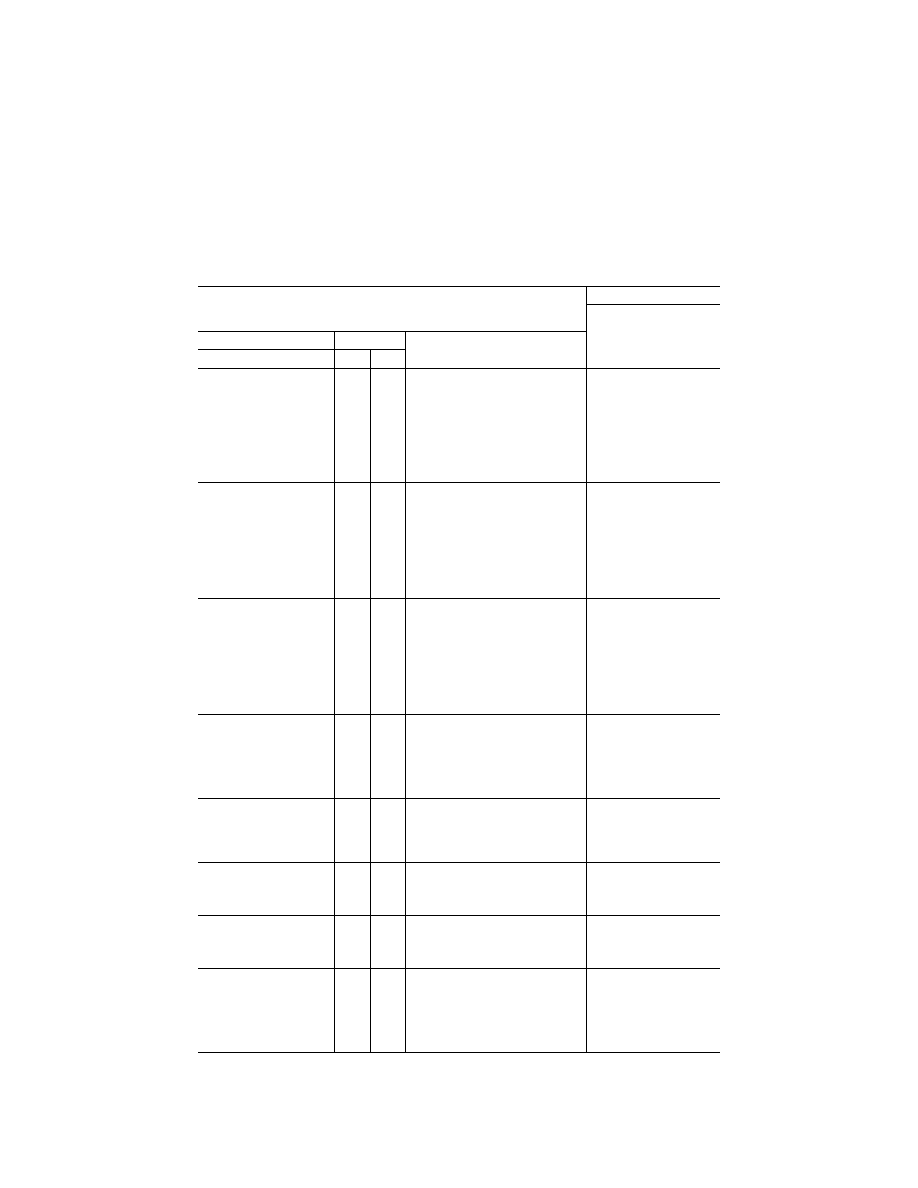
125
Federal Aviation Administration, DOT
Pt. 60, App. A
T
ABLE
A2E—A
LTERNATIVE
D
ATA
S
OURCES
, P
ROCEDURES
,
AND
I
NSTRUMENTATION
—Continued
QPS REQUIREMENTS
The standards in this table are required if the data gathering methods described in paragraph
9 of
Appendix A are not used.
Information
Table of objective tests
Sim level
Alternative data sources, procedures, and
instrumentation
Notes
Test entry number and title
A
B
2.a.1.a. Handling Qualities. Stat-
ic Control Checks. Pitch Con-
troller Position vs. Force and
Surface Position Calibration.
X
X
Surface position data may be acquired
from flight data recorder (FDR) sensor
or, if no FDR sensor, at selected, sig-
nificant column positions (encom-
passing significant column position data
points), acceptable to the NSPM, using
a control surface protractor on the
ground. Force data may be acquired by
using a hand held force gauge at the
same column position data points.
For airplanes with reversible
control systems, surface po-
sition data acquisition should
be accomplished with winds
less than 5 kts.
2.a.2.a. Handling Qualities. Stat-
ic Control Checks. Roll Con-
troller Position vs. Force and
Surface Position Calibration.
X
X
Surface position data may be acquired
from flight data recorder (FDR) sensor
or, if no FDR sensor, at selected, sig-
nificant wheel positions (encompassing
significant wheel position data points),
acceptable to the NSPM, using a con-
trol surface protractor on the ground.
Force data may be acquired by using a
hand held force gauge at the same
wheel position data points.
For airplanes with reversible
control systems, surface po-
sition data acquisition should
be accomplished with winds
less than 5 kts.
2.a.3.a. Handling Qualities. Stat-
ic Control Checks. Rudder
Pedal Position vs. Force and
Surface Position Calibration.
X
X
Surface position data may be acquired
from flight data recorder (FDR) sensor
or, if no FDR sensor, at selected, sig-
nificant rudder pedal positions (encom-
passing significant rudder pedal position
data points), acceptable to the NSPM,
using a control surface protractor on the
ground. Force data may be acquired by
using a hand held force gauge at the
same rudder pedal position data points.
For airplanes with reversible
control systems, surface po-
sition data acquisition should
be accomplished with winds
less than 5 kts.
2.a.4. Handling Qualities. Static
Control Checks. Nosewheel
Steering Controller Force and
Position.
X
X
Breakout data may be acquired with a
hand held force gauge. The remainder
of the force to the stops may be cal-
culated if the force gauge and a pro-
tractor are used to measure force after
breakout for at least 25% of the total
displacement capability.
2.a.5. Handling Qualities. Static
Control Checks. Rudder
Pedal Steering Calibration.
X
X
Data may be acquired through the use of
force pads on the rudder pedals and a
pedal position measurement device, to-
gether with design data for nosewheel
position.
2.a.6. Handling Qualities. Static
Control Checks. Pitch Trim In-
dicator vs. Surface Position
Calibration.
X
X
Data may be acquired through calcula-
tions.
2.a.7. Handling qualities. Static
control tests. Pitch trim rate.
X
X
Data may be acquired by using a syn-
chronized video of pitch trim indication
and elapsed time through range of trim
indication.
2.a.8. Handling Qualities. Static
Control tests. Alignment of
Flight deck Throttle Lever
Angle vs. Selected engine pa-
rameter.
X
X
Data may be acquired through the use of
a temporary throttle quadrant scale to
document throttle position. Use a syn-
chronized video to record steady state
instrument readings or hand-record
steady state engine performance read-
ings.
VerDate Sep<11>2014
16:30 Jun 25, 2019
Jkt 247047
PO 00000
Frm 00135
Fmt 8010
Sfmt 8002
Q:\14\14V2.TXT
PC31
kpayne on VMOFRWIN702 with $$_JOB